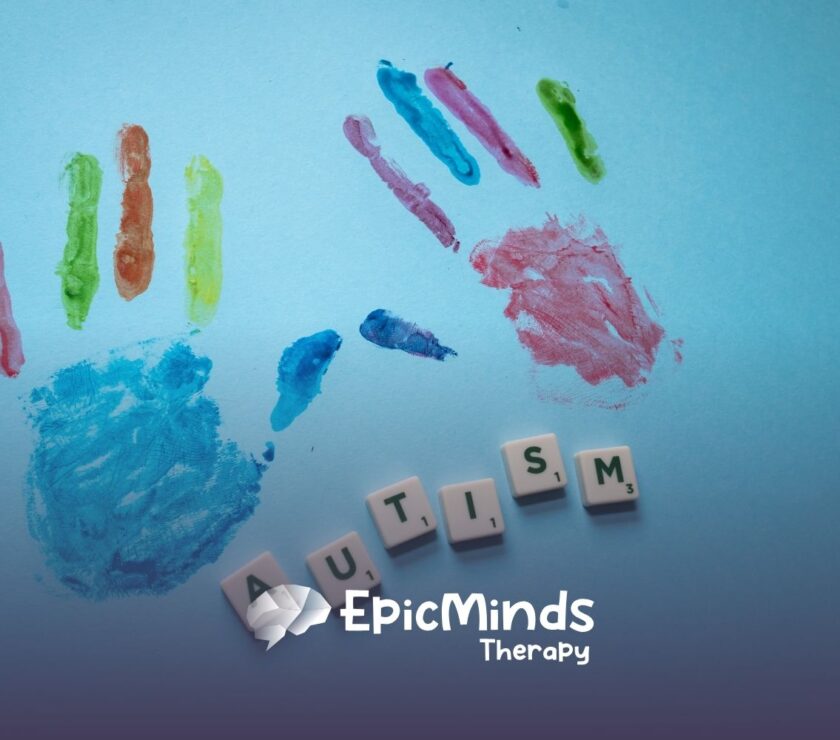Registered behavior technician training provides the foundational knowledge and practical skills needed to implement behavior-analytic services under the supervision of a Board Certified Behavior Analyst (BCBA).
This pathway, regulated by the Behavior Analyst Certification Board (BACB), ensures that Registered Behavior Technicians (RBTs) can follow ethical guidelines, collect accurate data, and apply Applied Behavior Analysis (ABA) techniques effectively. Prospective RBTs embark on a structured sequence of eligibility checks, coursework, assessments, and supervised practice before sitting for a certification exam.
By outlining each phase of the RBT training process from initial requirements to career progression, this article equips parents, educators, ABA professionals, and individuals with autism spectrum disorder (ASD) with a clear roadmap of what to expect. Whether someone is exploring roles in schools, home-based programs, or clinical settings, understanding these steps helps set realistic timelines and prepare for success in this growing field.
Meet Eligibility Requirements
Before beginning the formal training, candidates must satisfy basic entry criteria set by the BACB. These prerequisites ensure that individuals have the maturity, background, and integrity needed for work in sensitive behavioral health contexts.
Eligibility checks include:
- Age and Education: Applicants must be at least 18 years old and hold a high school diploma or equivalent.
- Background Screening: A criminal background check conducted within the last 180 days confirms that candidates meet professional standards.
- Professional Conduct: Candidates agree to adhere to the RBT Ethics Code, covering confidentiality, client dignity, and responsible data handling.
Meeting these requirements typically takes a few days to arrange documentation and clearances. Once approved, candidates can enroll in the next phase: the 40-hour training program.
Understand Program Structure
The heart of registered behavior technician training is a 40-hour curriculum covering critical ABA topics. Training can be completed through in-person workshops, online courses, or hybrid formats, depending on availability and learner preferences.
Key modules include:
- ABA Fundamentals: Core concepts such as reinforcement, punishment, and behavior measurement
- Ethical Practices: Professional boundaries, confidentiality, and ethical decision making
- Data Collection Methods: Frequency recording, duration measures, and continuous versus discontinuous recording
- Intervention Strategies: Discrete trial training, natural environment teaching, and behavior reduction plans
Program delivery varies by provider. Some organizations integrate training into employment onboarding, while third-party platforms like Jigsaw Connects offer free, AI-enhanced courses to remove financial barriers. Training must be completed over a minimum of five days and within 180 days of starting the course to align with BACB guidelines.
Complete Competency Assessment
After coursework, candidates demonstrate hands-on skills through a competency assessment conducted by a BCBA or qualified behavior-analytic professional. This live evaluation confirms the ability to perform crucial RBT tasks in real-world or simulated scenarios.
Assessment components include:
- Skill Demonstrations: Implementing a behavior reduction plan, conducting preference assessments, and delivering discrete trials
- Data Collection Accuracy: Recording and graphing client responses according to protocol
- Role-Play Scenarios: Responding to common challenges, such as managing escape behaviors or prompting errors
The assessor scores each task against a standardized checklist. Successful completion requires mastery of key skills with minimal prompting. If a candidate does not meet criteria on the first attempt, feedback is provided and a re-assessment can be scheduled once additional practice has occurred.
Approach Certification Examination
With the competency assessment passed, candidates submit their training documentation and background check results to the BACB. Once approved, they become eligible to take the RBT exam, the final step to full certification.
Exam details at a glance:
- Number of Items: 85 multiple-choice questions, including 10 unscored research questions
- Time Limit: 80 minutes to complete all items
- Content Areas: ABA principles and concepts, measurement, assessment, intervention, and professional conduct
- Passing Score: Determined by BACB standard-setting procedures
- Retake Policy: Up to eight attempts within a 12-month eligibility period if the exam is not passed on the first try.
Exam preparation often involves review guides, practice tests, and peer study groups. Providers like Jigsaw Connects offer revision packs and mock exams to improve confidence before test day.
Follow Supervision Guidelines
Certification alone does not conclude professional development. RBTs must maintain ongoing supervision by a BCBA or Board Certified Assistant Behavior Analyst (BCaBA) to ensure high-quality service delivery and ethical practice.
Weekly supervision requirements:
- Minimum 5% of Client Hours: At least one face-to-face supervisory session for every 20 hours of client contact
- Activity Types: Observation of service delivery, performance feedback, and skill-building discussions
- Documentation: Supervision logs that detail topics covered and hours completed, as outlined in the RBT Handbook.
Common supervision activities include reviewing data plots, troubleshooting challenging behaviors, and role-playing new intervention techniques. This structure provides a built-in feedback loop that supports continuous improvement.
Reporting And Feedback
Effective supervision balances praise for correct implementation with constructive guidance on areas needing refinement. Supervisors and RBTs collaborate to set goals, such as increasing prompt fading accuracy or mastering new data-collection software. Progress notes help the supervising BCBA adjust treatment plans and ensure client goals remain on track.
Explore Career Growth
The RBT credential opens doors to a variety of settings and advancement paths. Although the role is paraprofessional, it serves as a stepping stone toward advanced certifications and leadership positions.
Advancement pathways:
- Board Certified Assistant Behavior Analyst (BCaBA): Requires a bachelor’s degree, completion of an approved course sequence, and supervised experience
- Board Certified Behavior Analyst (BCBA): Involves a master’s degree in behavior analysis or related field, extensive fieldwork, and the BCBA exam
Employment settings span:
- Home-based Programs: Personalized interventions in a client’s living environment
- Educational Settings: Collaboration with teachers and school staff to support students with ASD
- Clinics and Agencies: Structured therapy sessions and interdisciplinary teamwork
- Residential and Community Centers: Group programs and social skills development
Providers like Epic Minds Therapy emphasize perks that support RBT well-being, including tuition reimbursement, mentorship from BCBAs, and staff social events. Such benefits help maintain motivation and foster professional camaraderie.
Prepare For Training
Success in registered behavior technician training depends on planning, study habits, and self-care. Candidates who prepare strategically can complete requirements more efficiently and retain key concepts.
Preparation strategies:
- Create a Study Schedule: Block out daily or weekly time for course work, exam review, and practical skill drills.
- Gather Resources: Use official BACB materials, practice exams, and video demonstrations of ABA procedures.
- Practice Data Collection: Simulate recording frequency, duration, and inter-observer agreement (IOA) to build confidence.
- Join Peer Groups: Share study tips, discuss challenging scenarios, and quiz each other on ethical guidelines.
- Manage Stress: Include brief breaks, exercise, and relaxation techniques to maintain focus during intensive study periods.
Balancing training with work or family obligations may require negotiating flexible hours or delegating tasks. Early communication with supervisors and loved ones reduces conflict and supports steady progress.
Conclusion
Registered behavior technician training follows a clear sequence of eligibility screening, intensive coursework, skill demonstration, and certification assessment. Throughout the process, adherence to BACB standards ensures that RBTs deliver ethical, data-driven interventions for individuals with autism spectrum disorder and related conditions. Once certified, professionals benefit from structured supervision, diverse workplace options, and defined pathways for career advancement to BCaBA and BCBA roles.
By understanding each phase, like meeting entry requirements, completing a 40-hour training program, passing a competency assessment, and excelling on the RBT exam, candidates can set realistic timelines and identify support resources. Ongoing supervision and professional development reinforce best practices, while strategic study habits and self-care help maintain momentum. Armed with this roadmap, aspiring RBTs in North Carolina and beyond can approach their training journey with confidence and clarity.
At Epic Minds Therapy, we specialize in providing personalized ABA therapy for children with autism in North Carolina, helping them build essential skills for a brighter future. We also offer RBT training and career advancement opportunities for those looking to make a meaningful impact in the field of behavior analysis.
Contact us today to learn how our ABA therapy services can support your child’s development, or to discover how you can become an RBT and grow in this rewarding career.
Frequently Asked Questions
What are the eligibility requirements to become an RBT?
To become an RBT, candidates must meet minimum age requirements, complete a 40-hour training program approved by the BACB, pass a competency assessment, and submit a criminal background check.
How long does it take to become certified as an RBT?
The timeline varies but typically takes 2–4 weeks to complete the 40-hour training, followed by the competency assessment and passing the RBT exam. The entire certification process can take a few months, depending on individual progress.
What support do RBTs receive after certification?
After certification, RBTs benefit from structured supervision by a BCBA, opportunities for career advancement to higher roles like BCaBA and BCBA, and access to ongoing professional development to stay updated with best practices.
SOURCES:
- https://www.bacb.com/rbt/
- https://www.mypts.com/rbt-certification-eligibility-requirements
- https://shccares.com/blog/allied-health/building-a-healthcare-career-as-a-registered-behavior-tech
- https://jigsawconnects.com
- https://www.appliedbehavioranalysisedu.org/registered-behavior-technician





